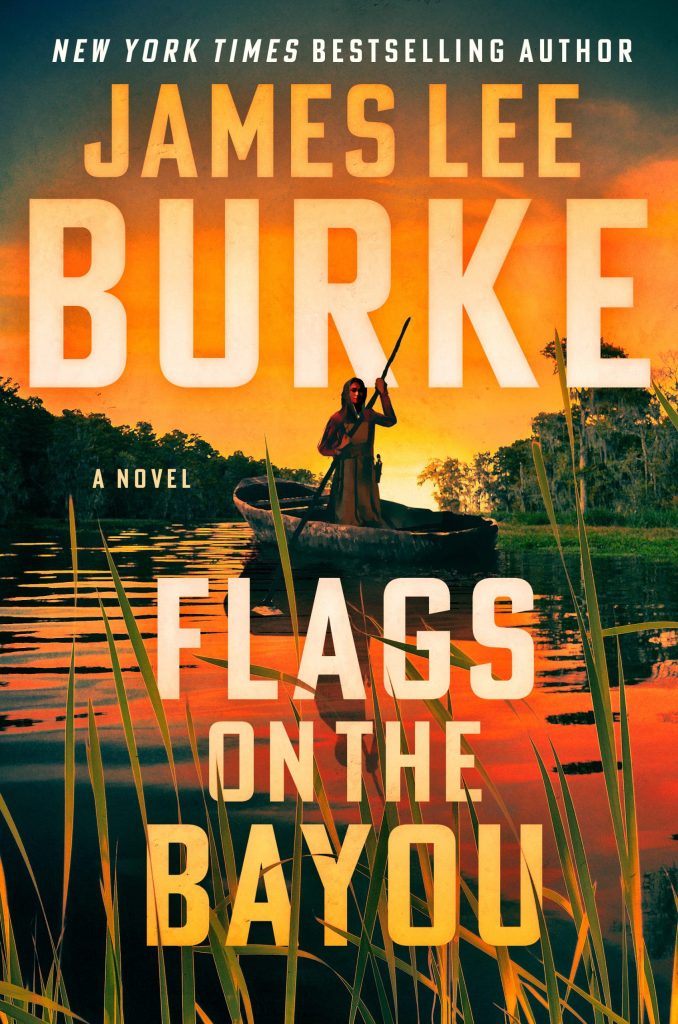By Terri Schilchenmeyer
There’s right. And there’s wrong.
You know the difference, even if you can’t or don’t want to know. One is more exciting, fun, more profitable, and easier to do. The other is hard, and can leave you holding an empty bag but a fuller heart. So which do you choose? Or, as in the new novel, “Flags on the Bayou” by James Lee Burke, do you wait and see what happens?
The box was made of dark wood, slightly bulkier than the flintlocks inside it. Pierre Cauchon, oversight constable for a large area of Louisiana, didn’t want to fight Wade Lufkin that day in 1863, but though the woman activist from Massachusetts tried to stop them and Lufkin give Cauchon a small chance to resist, Lufkin also seemed determined to have this duel.
He would live to regret it, but barely.

She knew Samuel was alive. Somehow, he told her so.
But Hannah herself wasn’t safe. Cauchon was looking for her; word was that she was stirring up trouble on other plantations. Word was that she’d mutilated and murdered Minos Suarez after he tried to bed her. Cauchon felt certain that Lufkin’s uncle had some hand in the murder, too.
But the more he investigated, the more he believed that Hannah wasn’t the killer he was looking for. His own intuition, and the duel-gone-wrong, altered Cauchon’s outlook on a lot of things. So did the presence of a syphilitic, perhaps insane, outlaw tasked with guarding the Lufkin plantation…
Aha, you think. A nice new Dave Robicheaux book for the summer, right?
Not by a long shot. “Flags on the Bayou” couldn’t possibly get any further from that series or any other thriller by author James Lee Burke.
There’s a lot of chaos and a lot to keep track of inside this book, and much of it isn’t pleasant to read. You may, in fact, spend a lot of time wincing at the vice and violence in the story, at the realistic but cringe-worthy language, and the cruelty that’s authentic here but still hard to take.
These things can make the story feel stained and grimy, like you’d pick it up with two fingers so you don’t soil your hands. Other times, it feels like any other thriller, exciting but somehow safe before Burke sneaks in a chuckle, incongruous and welcomed.
Is this a good book? Yes, but don’t be surprised if you stare into space for a few minutes after you’ve shut the back cover. You won’t shake this novel off easily, and if that’s the kind of book you love, with “Flags on the Bayou,” you can’t go wrong.




